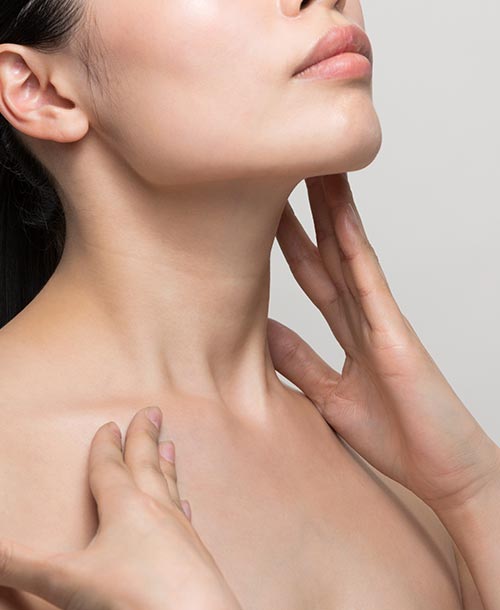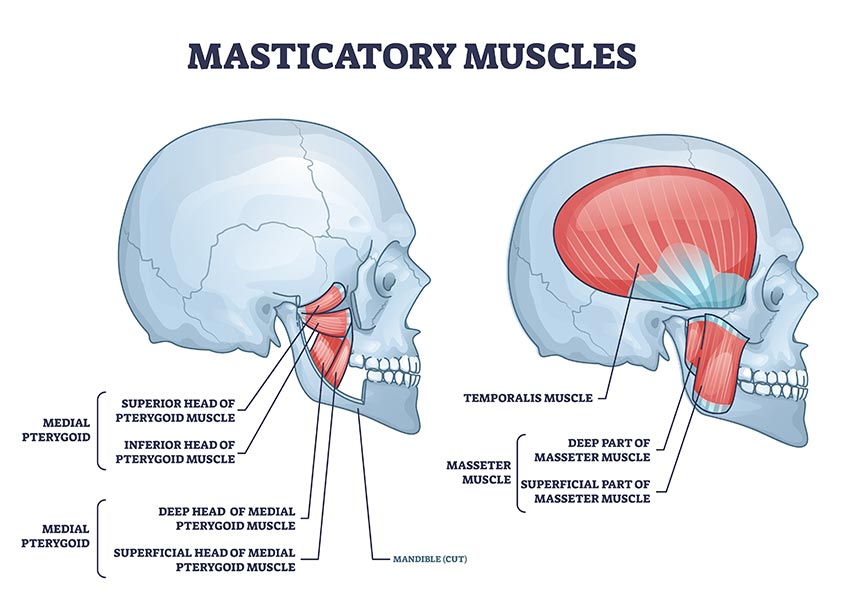Teeth grinding (bruxism): causes and treatments
What is bruxism?
Bruxism is a disorder that affects 5% of the population. It refers to teeth grinding due to the involuntary contraction of the masticatory muscles: the masseter and the frontal.
There are two forms: teeth clenching (centred bruxism) or lateral movements (eccentric bruxism).
It can occur during the day, but most often at night. It may be transitory or prolonged over time. It is physiological in children in order to facilitate the removal of milk teeth.


Why do I grind my teeth ?
We don’t know exactly why a percentage of the population grinds their teeth.
The main factors responsible are stress and anxiety.
Contributing factors include sleeping on your back, periods of wakefulness during the light sleep phase and misalignment of the jaws. Stress and anxiety are the main factors responsible..
Is bruxism dangerous ? The consequences of bruxism
The consequences are:
♦ Dental wear.
♦ Wear of the temporomandibular joint, which can go as far as arthrosis of this joint: pain when chewing, limited ability to open the mouth, cracking of the joint when opening or closing the mouth.
♦ Headache on waking.
♦ Non-restorative sleep.
♦ Aesthetic repercussions due to hypertrophy of the masticatory muscles (increase in volume of the masseter and temporal muscles): hypertrophy of the temporal muscle manifests itself by a bulge at the temple, that of the masseter muscle by a widening of the lower third of the face, particularly in its posterior part.
♦ Teeth grinding is noisy and can cause discomfort to the partner.


→ En savoir plus sur le botox
How can I stop grinding my teeth at night ? Treating bruxism
Relaxation techniques (hypnosis, sophrology), anxiolytics and muscle relaxants are often suggested, but are ineffective. Wearing mouthguards protects the teeth from wear but does not stop the muscular contraction.
The only effective treatment is botox injections into the masseter and/or temporalis muscles. Muscle contraction stops, the lower third of the face is refined (the weakened muscles are less voluminous) and the consequences of bruxism are also treated. A single session is all that is needed. The results last for six months.
The botox is injected specifically into the muscle concerned and in concentrated quantities to prevent it spreading to muscles that are not the target of the treatment.
A botched injection can deform the mouth or prevent it from smiling. Hence the importance of using an experienced injector who is used to these injections.
Prices
Type of consultation
Prices generally charged
Botox masseter/bruxism
CHF 500 for the 1st vial, CHF 350 for each additional vial. 1 to 3 vials are required.